
Malta has always fascinated ever since I watched a movie on the Siege of Malta during World War II. It is a tiny island in the Mediterranean, strategically located for shipping going through Suez Canal to India. I did a short 3 day trip to Malta.
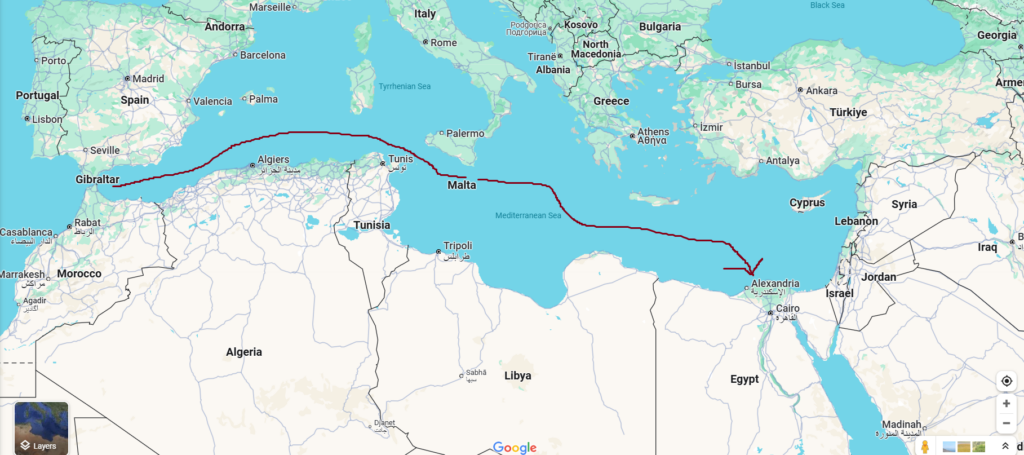
Malta is made up for 3 major islands, of which Malta and Gozo are the two big islands.

Day 1: Tue, Dec 10, 2024: Rabat, Medina
I landed at Malta Airport at around 1 pm, got through immigration and customs very quickly and was in my rental car with Hertz by around 2 pm. I had gotten the rental car because it was very inexpensive (about $25 per day).
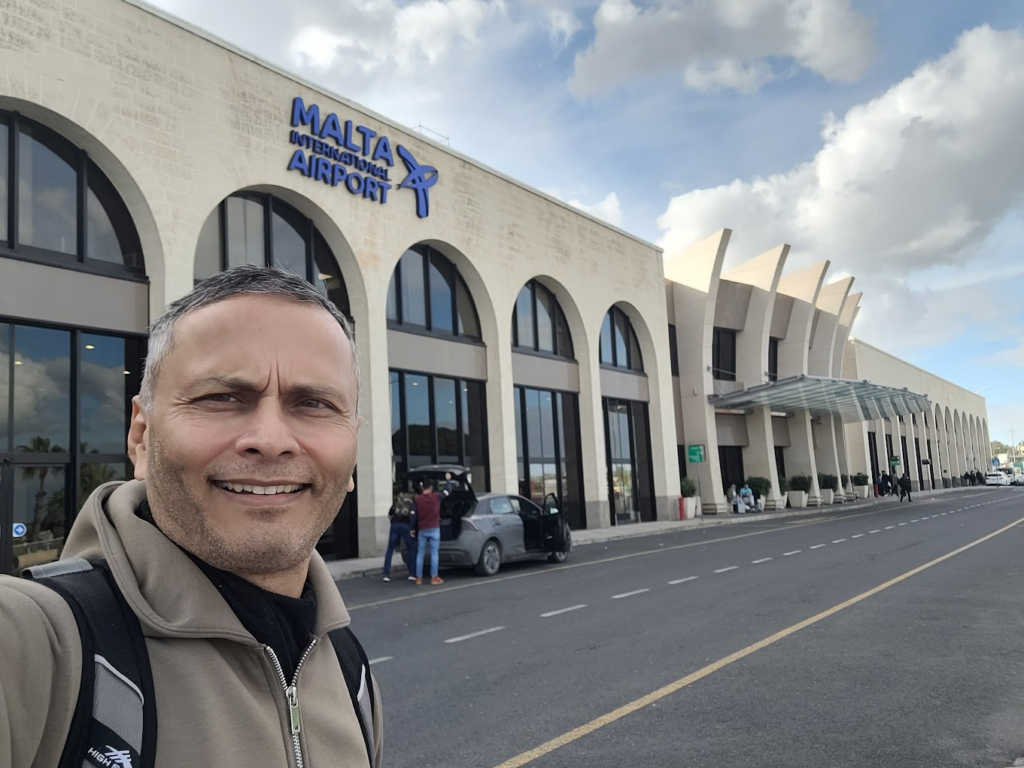
I headed straight to the twin cities of Rabat and Medina (also written as M’dina). Medina is the city with the fortress and Rabat is the suburb. We met our guide Ben, for the free walking tour at the entrance of the city of Medina. The wall that surrounds the ancient fortress of Mdina also delineates the boundary between the two cities. In case you were wondering, the name Rabat is derived from the Arabic word for suburb. So that’s the relationship they have with each other.
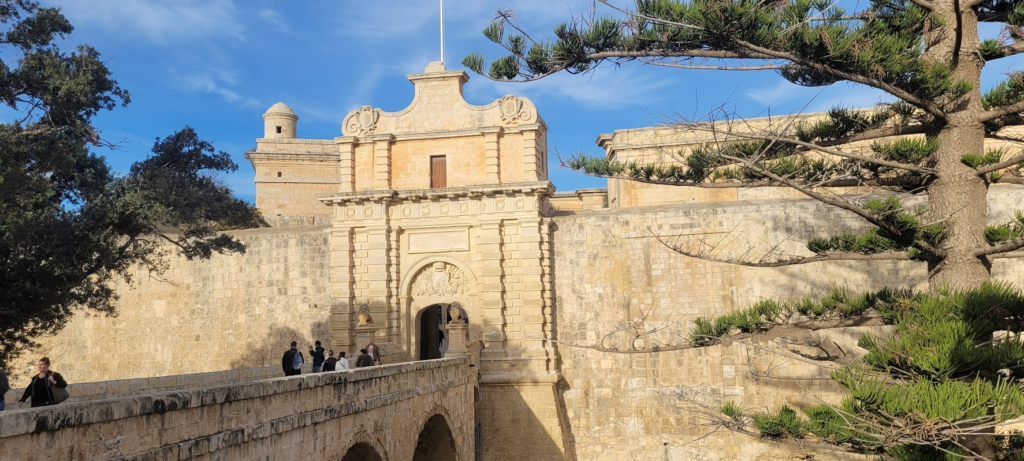
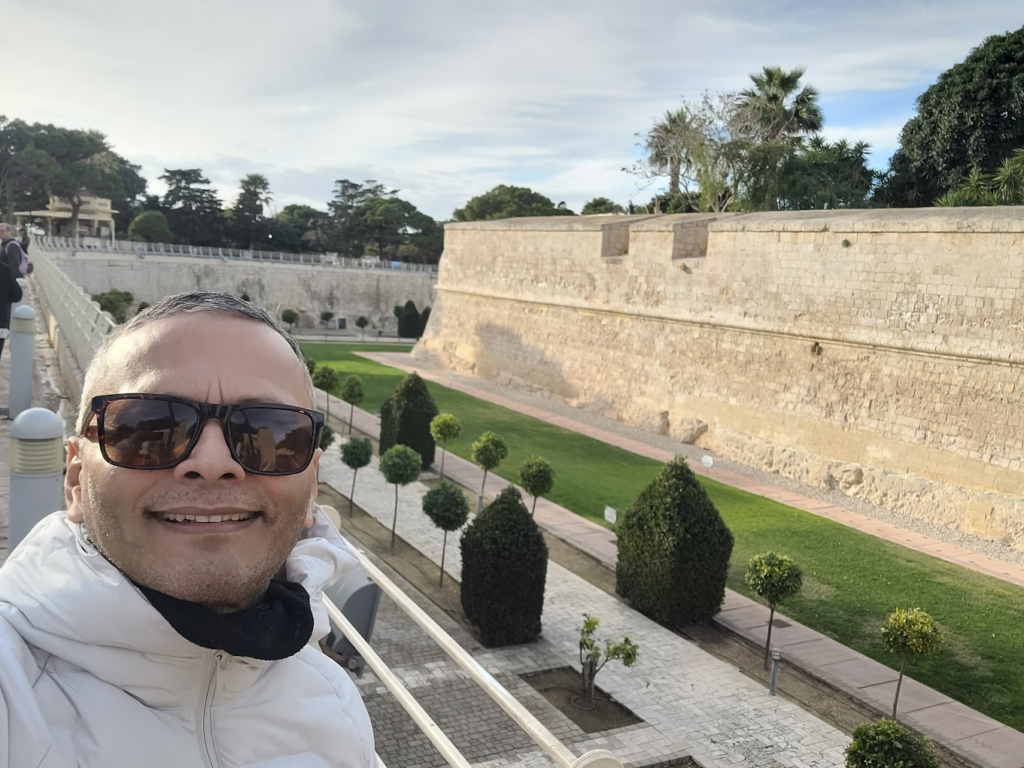
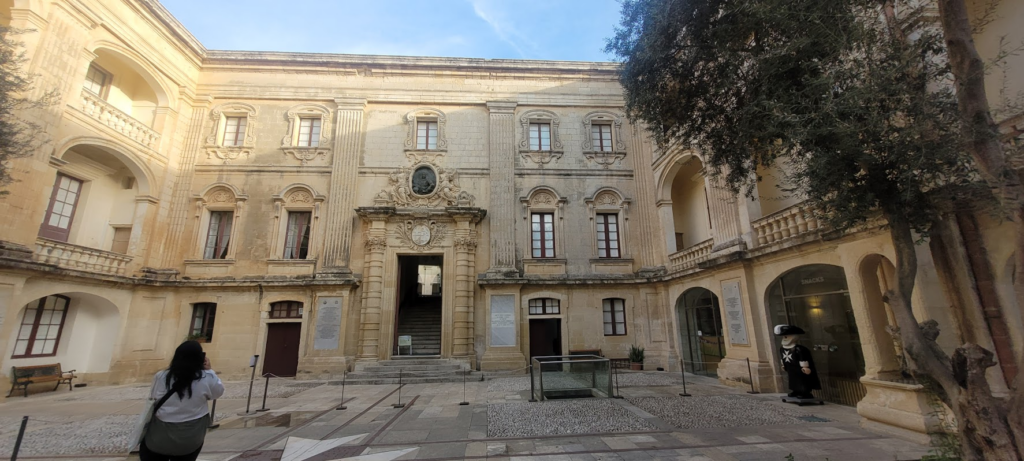
The Maltese language has 32% Arabic and 52% Italian/Latin words, that indicates the extent of the Muslim influence on the Maltese language. This is because of the unique location of Malta between Europe and Africa.
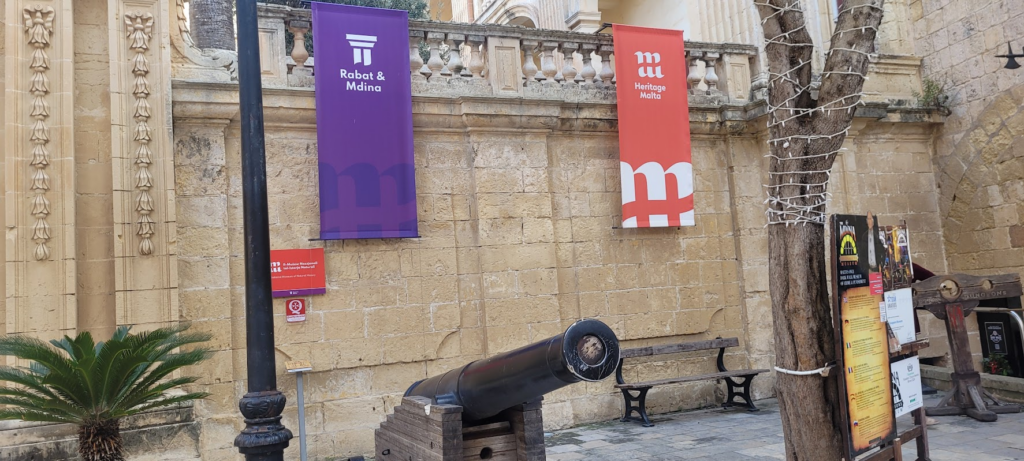
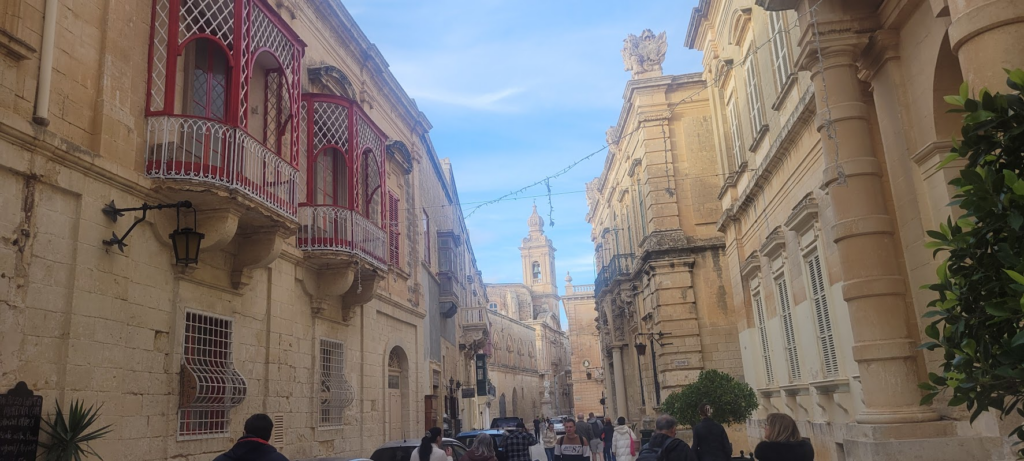
We proceeded to St. Paul’s Cathedral in Medina. The cathedral was founded in the 12th century, and according to tradition it stands on the site where Roman governor Publius met St. Paul following his shipwreck on Malta. The original cathedral was severely damaged in the 1693 Sicily earthquake, so it was dismantled and rebuilt in the Baroque style to a design of the Maltese architect Lorenzo Gafà between 1696 and 1705. The cathedral is regarded as Gafà’s masterpiece.
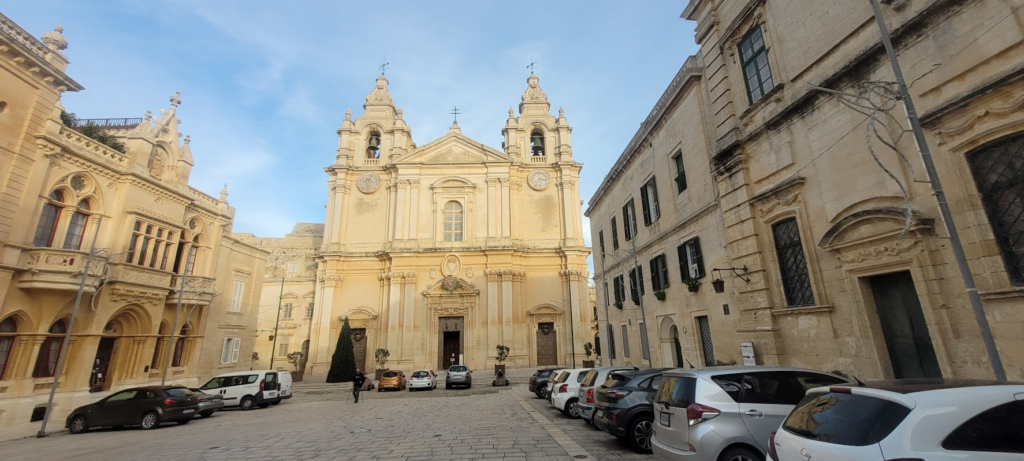
One interesting fact in the picture above is the number of cars you see on the street. In Malta, parking is free, Maltese hate paying for parking.
Maltese take pride in beautifying their entrances. The following photo is a great example of such an entrance.
We finished our tour of Medina and proceeded to Rabat, the suburb.
The guide recommended a Maltese local delicacy called Pastizzi. It is like the veg puff or veg pattice that we get in India. The pastizzi is really inexpensive, about 70 cents a piece. Two pastizzi is equivalent of a meal.
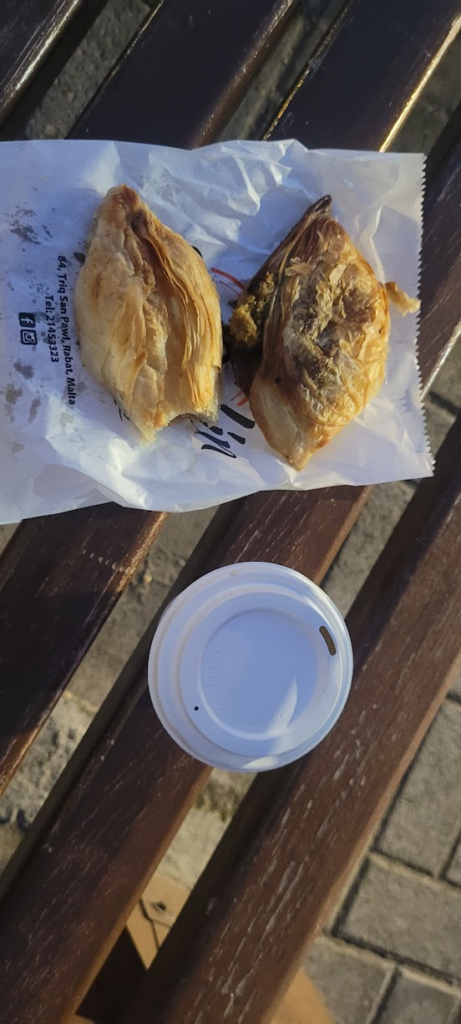
We visited Basilica of St. Paul in Rabat built in 1578. According to the tradition St Paul lived and preached here during his three months stay in Malta in 60 A.D.
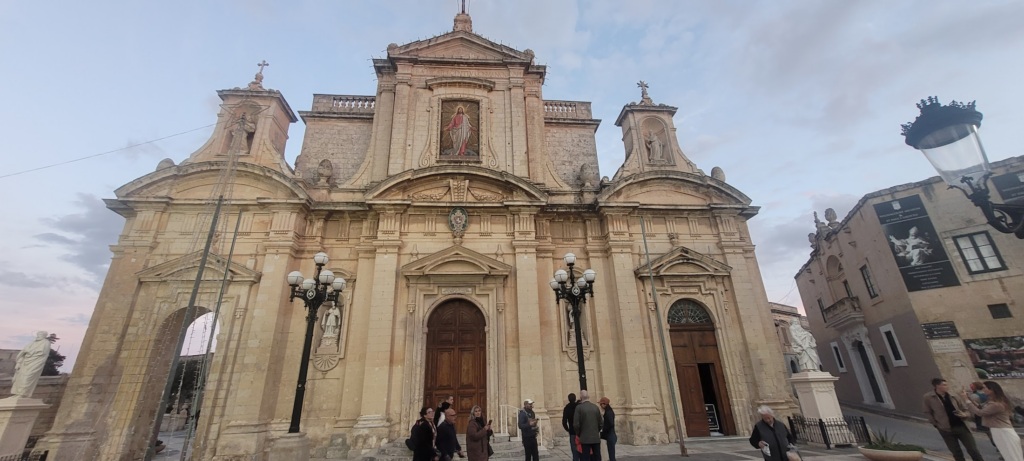
St Paul that first introduced Christianity to the Maltese people around the time of AD 60. His fabled arrival on the island was actually as a result of an accident, as the ship he was sailing on was caught in a violent storm. St Paul and 270 other people were travelling by ship to Rome, where he was being taken to be tried as a political rebel, and the storm they encountered caused the vessel to become shipwrecked, and all aboard were forced to swim to safety on a seemingly barren and uninhabited island. The site of the shipwreck is known as St Paul’s Island (in Malta), some 80 metres off of the coast of Mellieha, where today it is home to a statue of St Paul that marks this historically significant event.
We walked around Rabat. It looked nice in the evening light. Though I was in the Mediterranean, it was still very cold because of the winter.
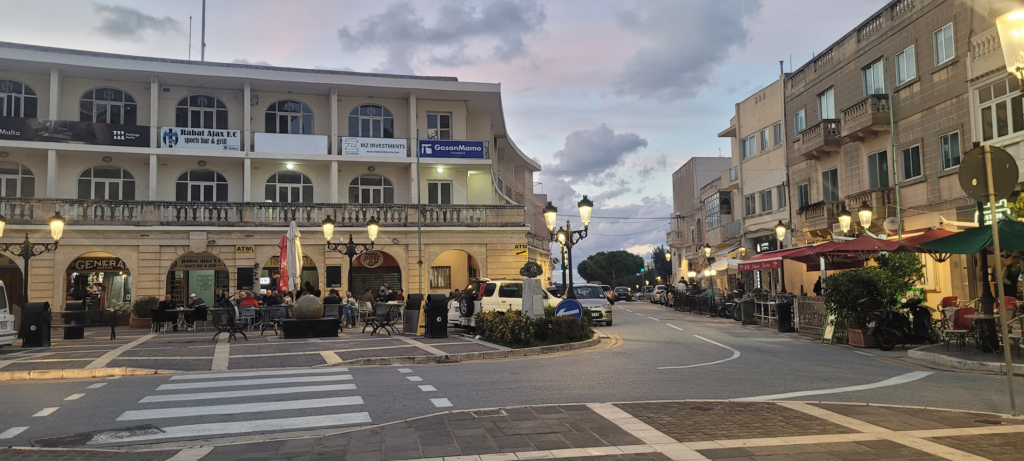
I stayed at AX The Victoria Hotel in Sliema, a suburb near Valetta, the capital. It had very good reviews, but the rooms were a little small.
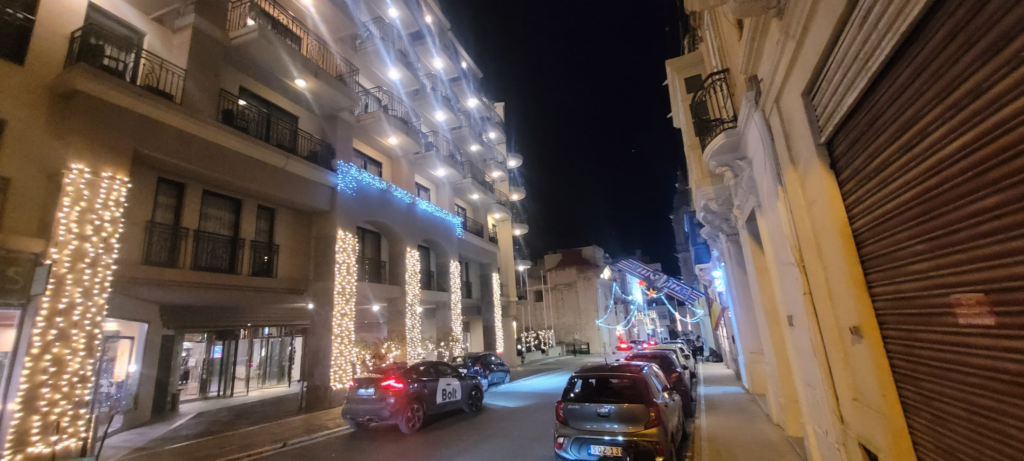
Day 2: Wed, Dec 11, 2024: Valetta
I had signed up for a free walking tour of Valetta (the capital) at 10 am. The gates of Valetta are interesting in their design.
The first stop was the new parliament building of Malta. The main city of Valetta is mostly a walking city, though cars do navigate on the narrow streets. A big Christmas tree is visible in front of the building.
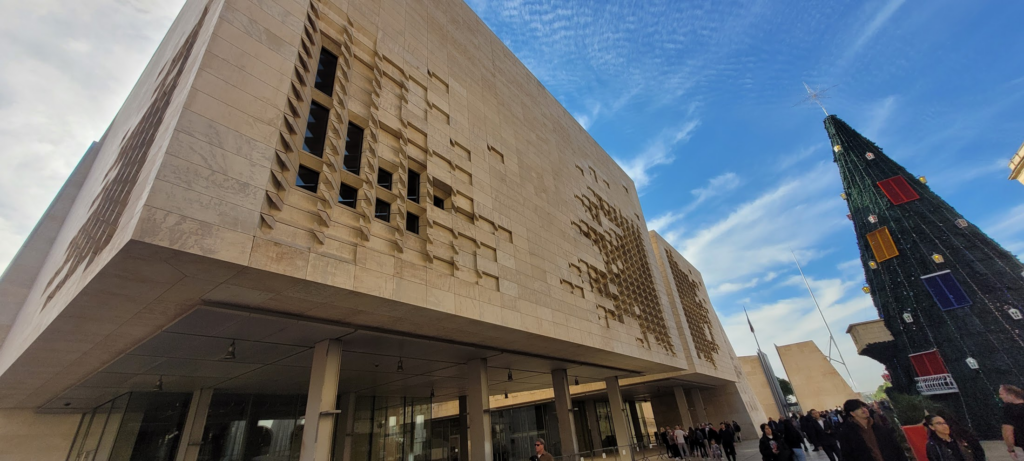
Palazzo Ferreira is is the second biggest palace in Valletta that was built in the 19th century and designed by a Maltese draftsman and architect Giuseppe Bonavia. Previously used as a foundry of the Knights to manufacture armaments, now the palace hosts several shops and government offices and shines with new colours together with its restored look.
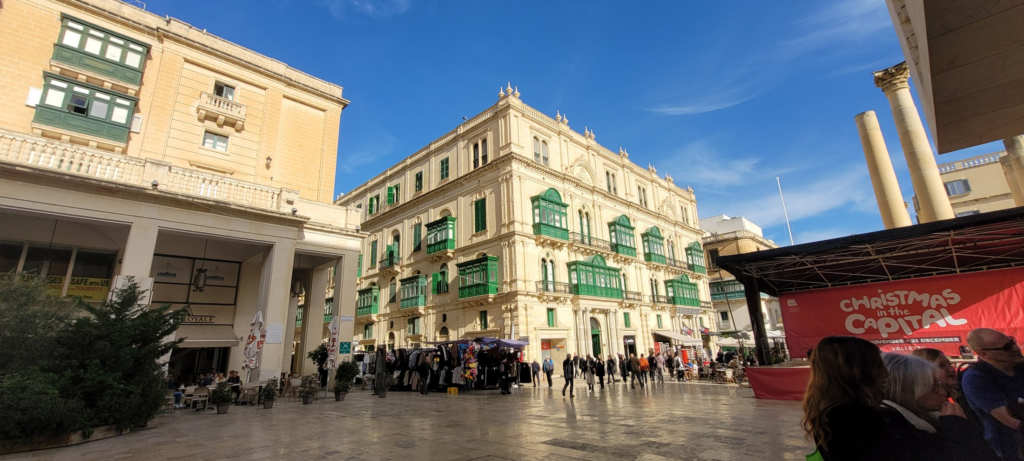
We walked past the Valetta opera house, though most citizens don’t like the look of the opera house.
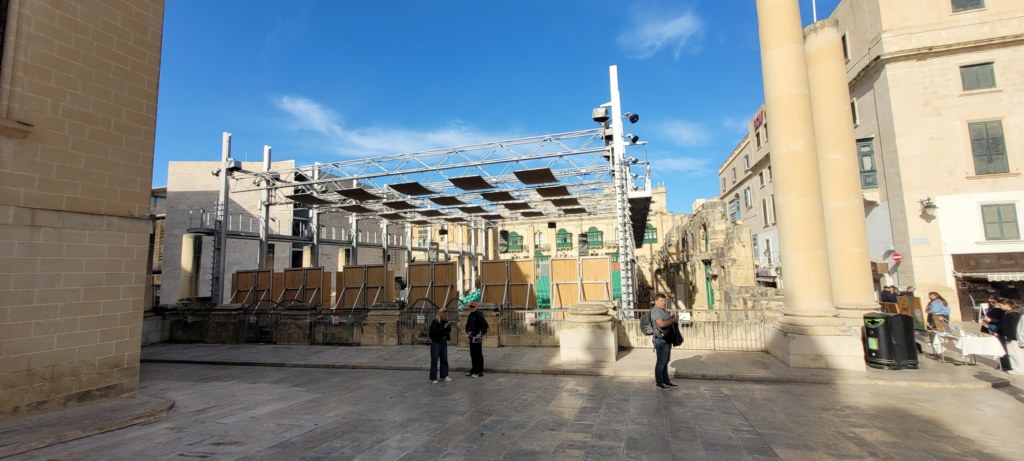
The Our Lady of Victory Church was the first church and building completed in Valletta. The church was built to commemorate the victory of the Knights of the Order of St John and the Maltese over the Ottoman Muslim invaders on 8 September 1565. It was built on the site where a religious ceremony was held to inaugurate the laying of the foundation stone of the new city of Valletta on March 28, 1566.
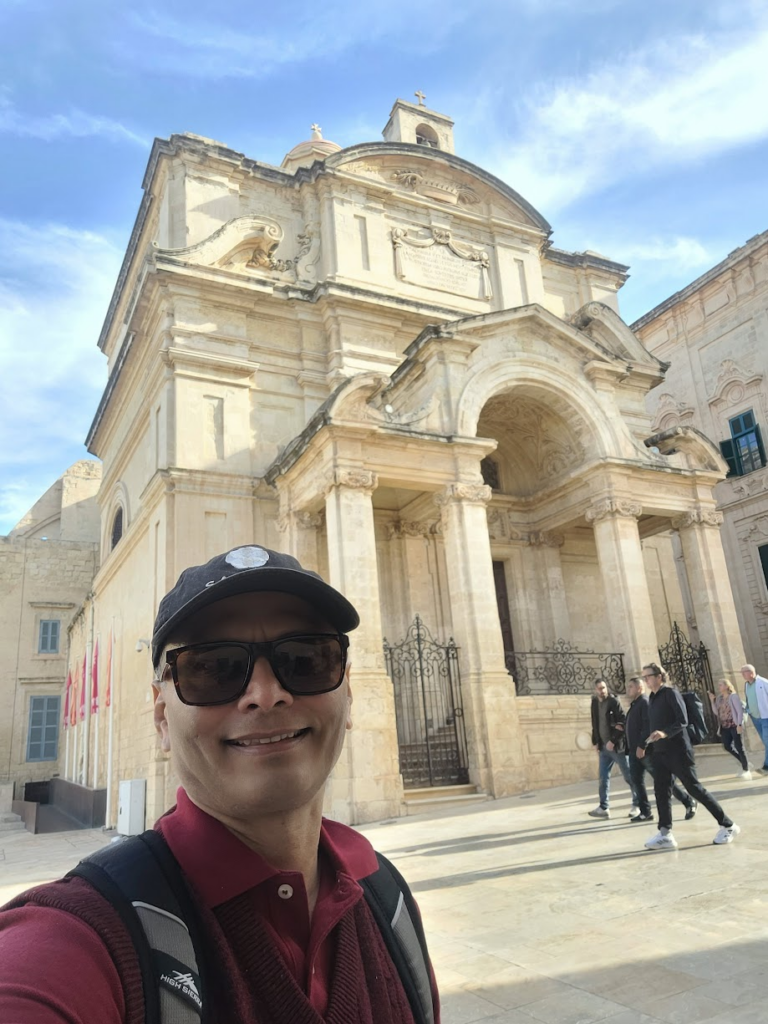
The Knights of the Order of St. John have an interesting history. They started out as a Catholic order to build hospitals and provide medical help. They fought during the crusades to take back Jerusalem. Then they became a military organization when they started recruiting knights. In 1565, they beat the Ottomans during the Siege of Malta. 500 Christian soldiers beat 6,000 invading Ottoman soldiers. This event was a landmark in the victory of Christianity over Islam. The Order of St. John ruled Malta for centuries after that. The head of the order is called the Grand Master.
Jean Valette was the grandmaster, who commanded the resistance against the Ottomans at the Great Siege of Malta in 1565. The city of Valetta is named after him.
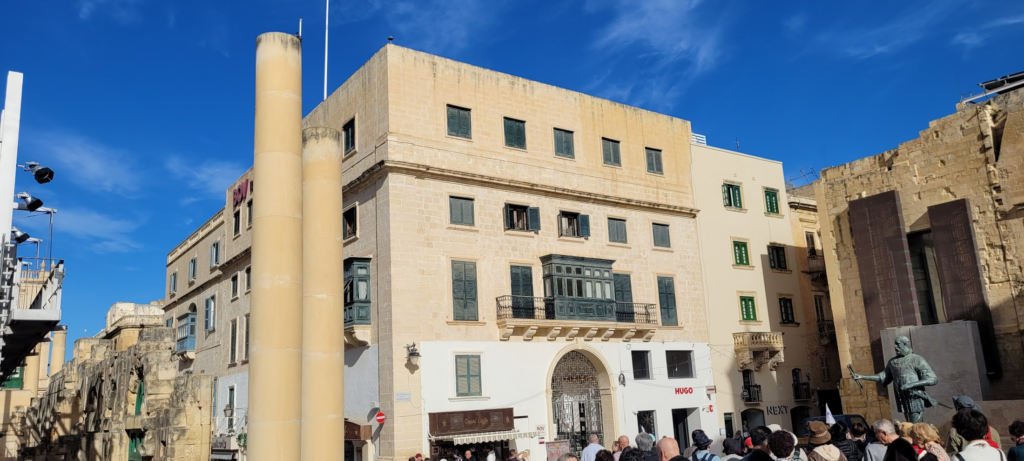


We walked along the Valetta harbor. The large harbor provided a huge advantage to Valetta militarily. A lot of movies such as Captain Philips, Gladiator, Troy were shot in the Valetta harbor,
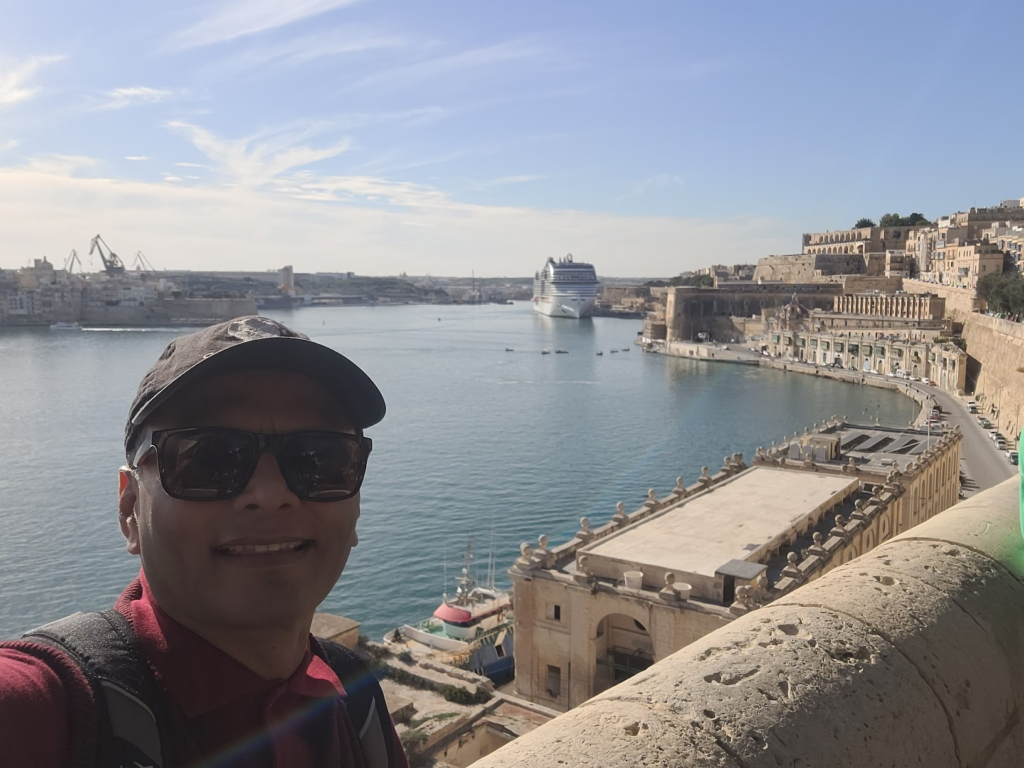
We walked to the Lower Barakka, a small park with gardens and sea views.
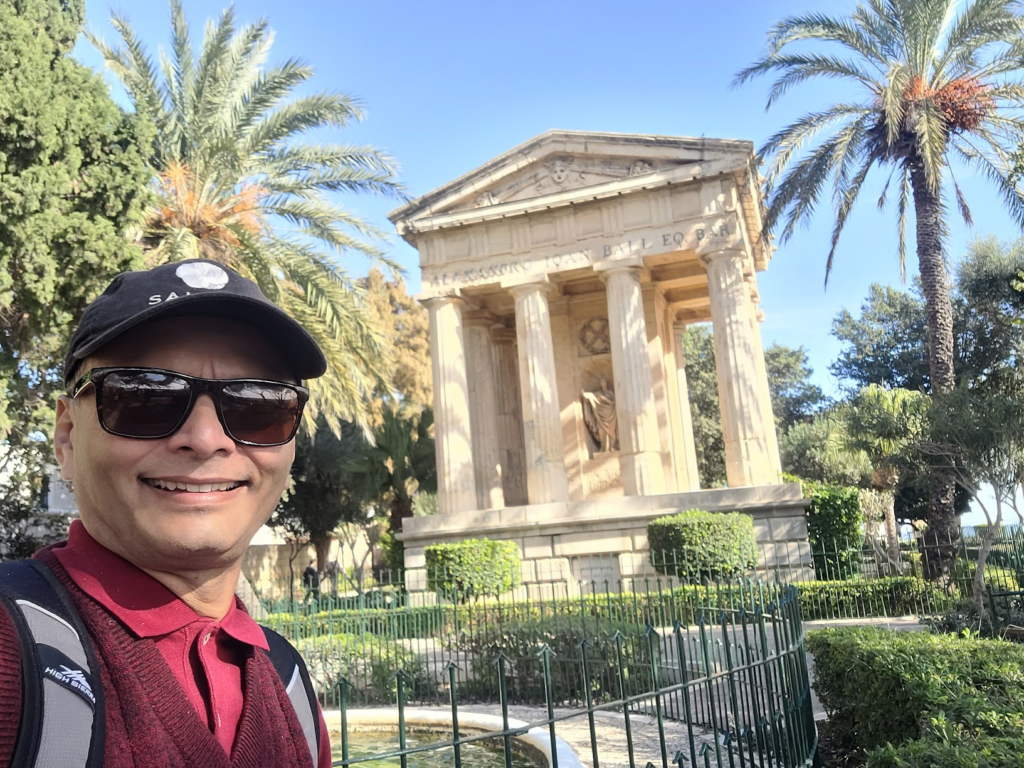
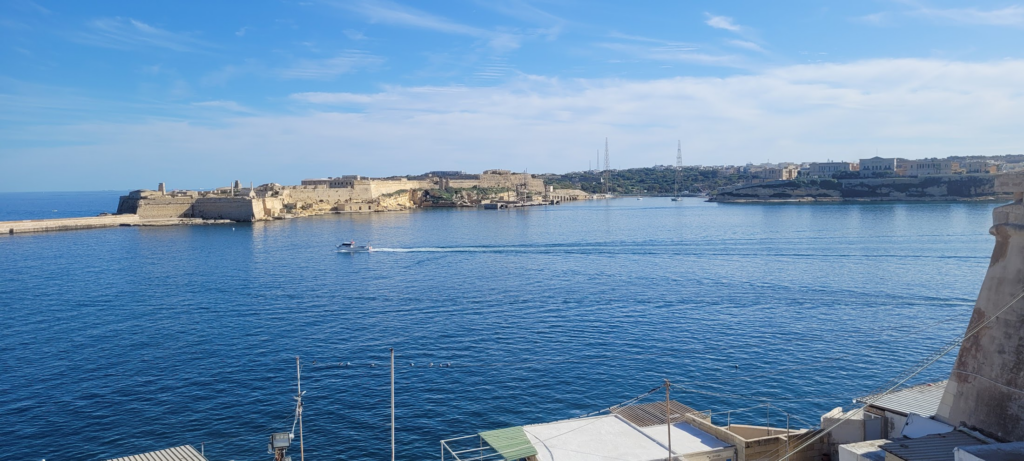
We were done with the walking tour around 12 noon. I had a simple sandwich with iced tea for lunch.
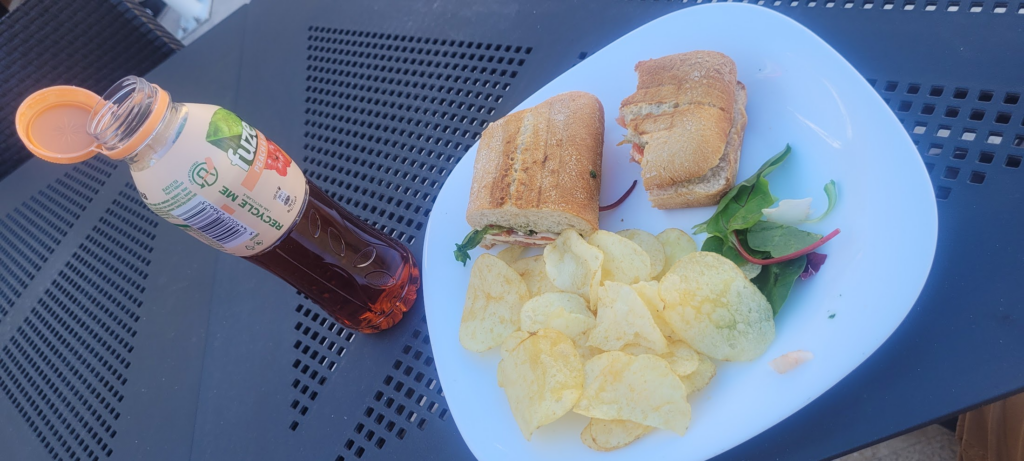
I visited the National War Museum in Fort St. Elmo. Fort St. Elmo bore the brunt of most attacks on the island of Malta. It is one of the most popular museums in Malta with its collection having a significant number of exhibits from World War I and World War II.
After visiting the museum, my next stop was The Malta Experience, a 45 min IMax movie about the history of Malta. It was adjacent to the National War Museum. It was a very good introduction to Malta.
At around 3 pm, I proceeded to St John’s Co-Cathedral, dedicated to Saint John the Baptist. It was built in Valetta by the Order of St. John between 1573 and 1578. St John’s was raised to a status equal to that of St Paul’s Cathedral in Mdina – the official seat of the Archbishop of Malta – by a papal decree of 1816, hence the term ‘co-cathedral’.
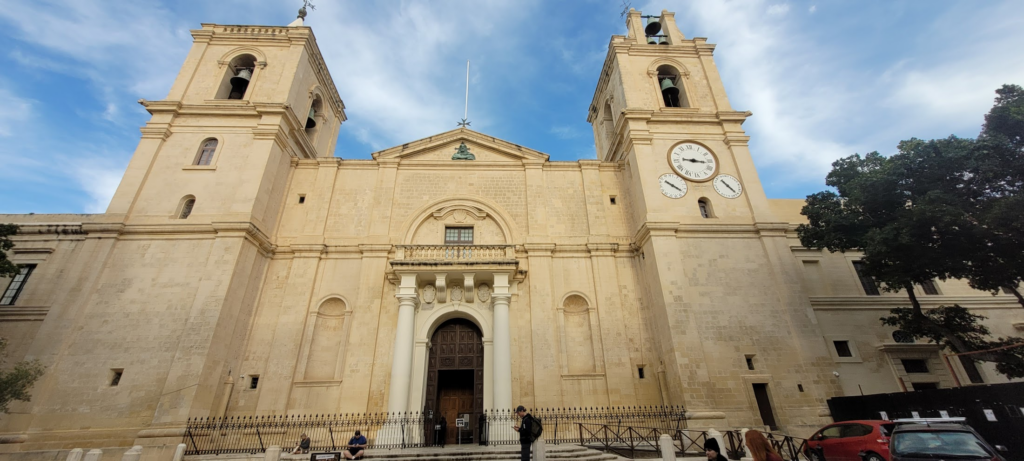
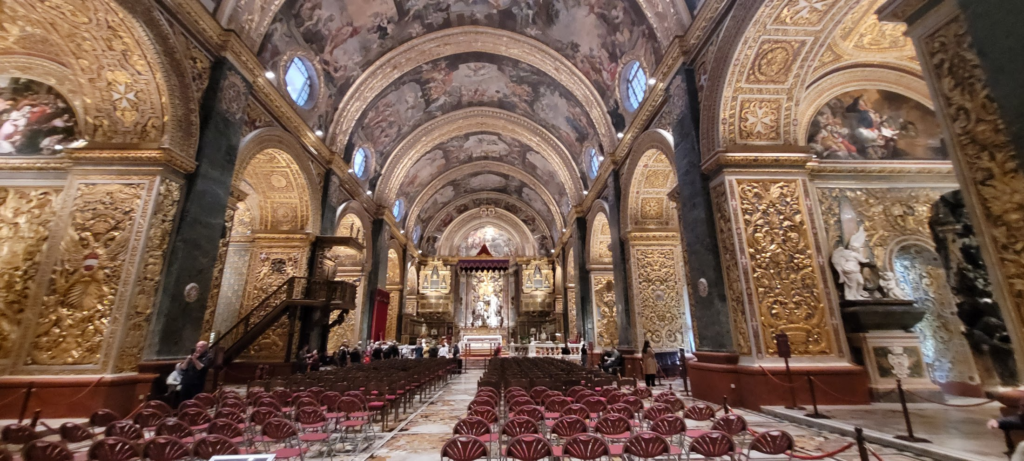
At 4 pm, I proceeded to see the ceremonial firing of the cannon on Valetta harbor. The Saluting Battery was mainly used for firing ceremonial gun salutes and signals marking the opening and closure of the city gates, but it also saw military use during the blockade of 1798–1800 and World War II. The battery remained an active military installation until its guns were removed by the British in 1954. It was restored and opened to the public in the early 21st century, and it is now equipped with eight working replicas of SBBL 32-pounders which fire gun signals daily, Mon – Sat, at 12 noon and 4 pm.
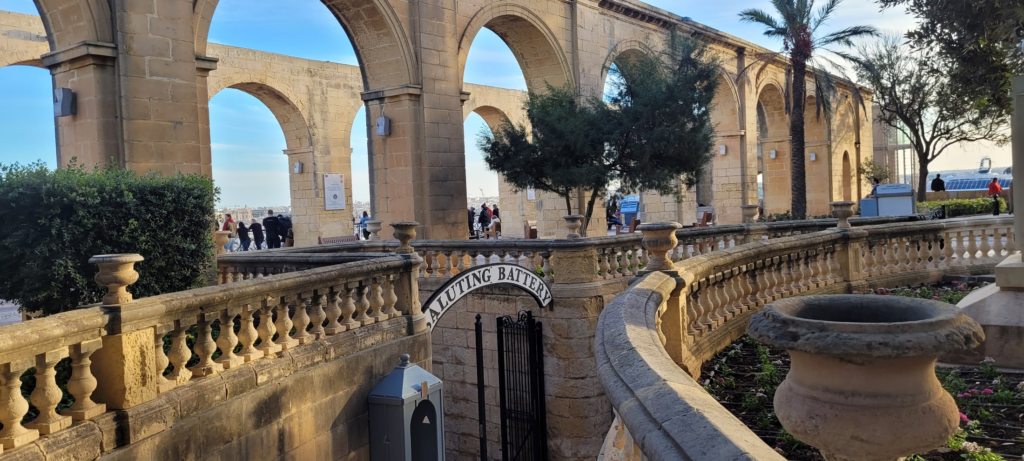
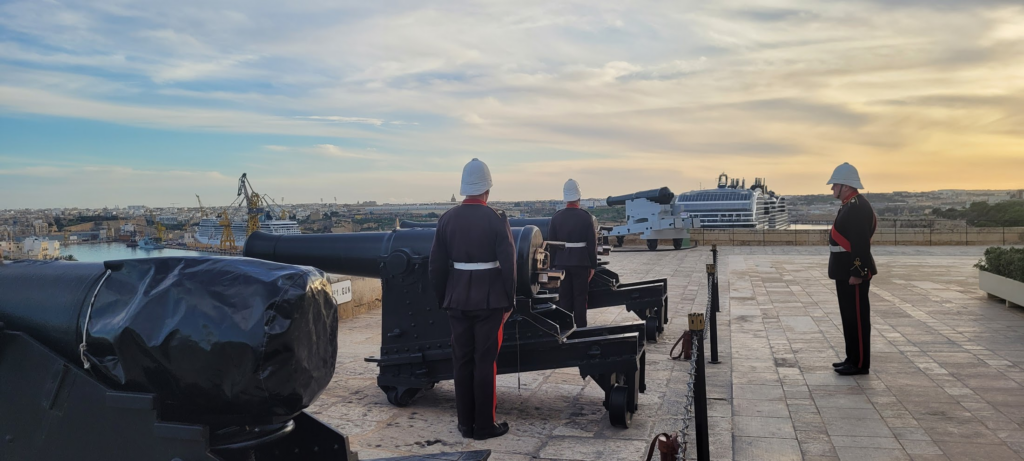
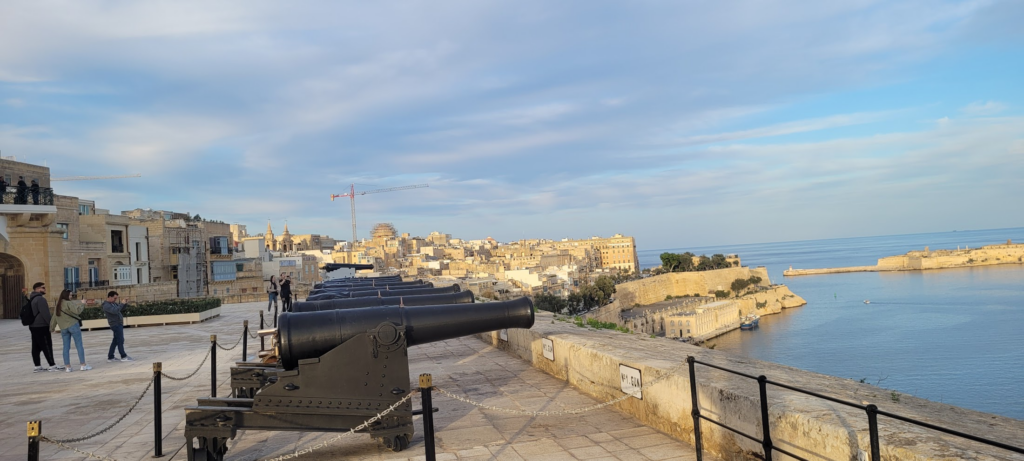
In the evening, I took a ferry across the harbo to Il Birgu, a suburb of Valetta. It was a nice opportunity to go across the harbor and catch views of Valetta from the other side.
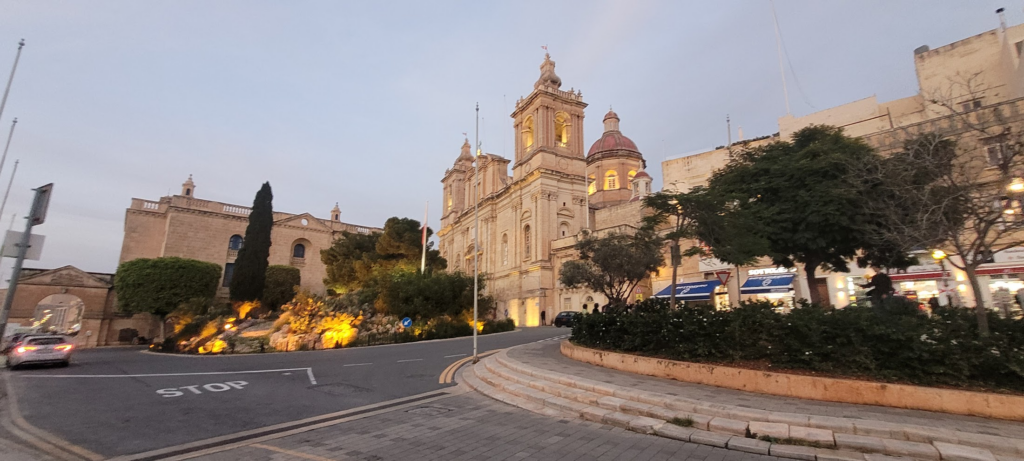
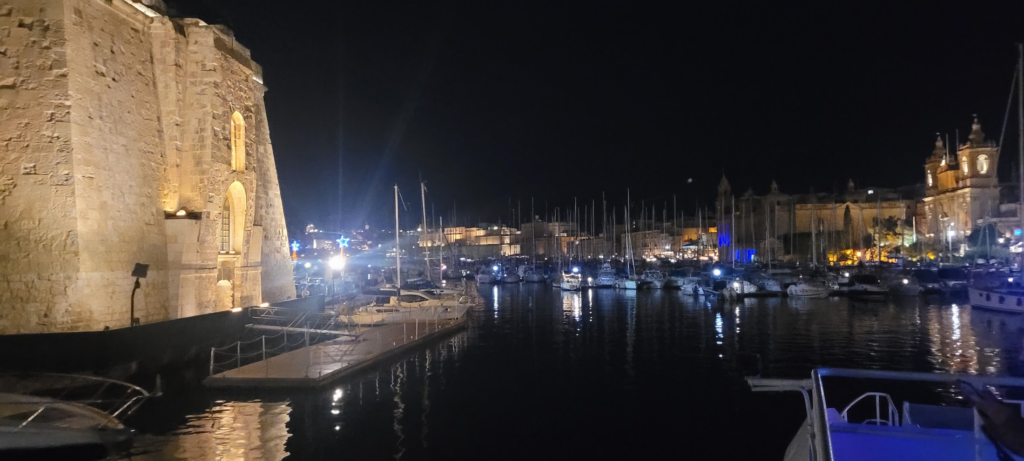
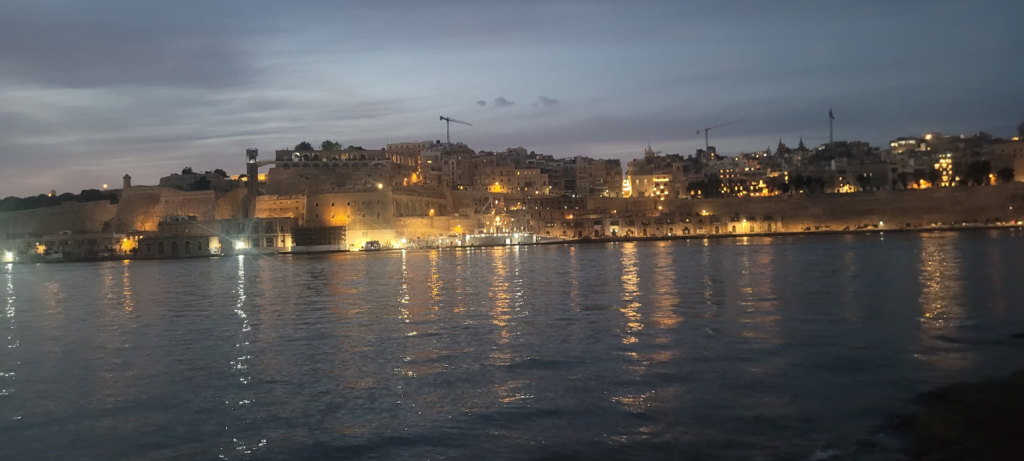
I had a nice cup of tea near Fort St. Angelo.
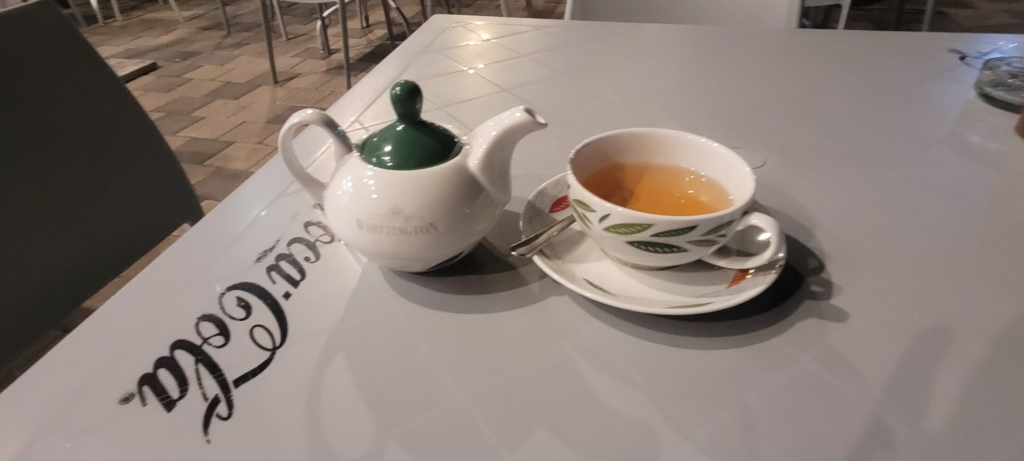
When I got back to Valetta, I stopped by a huge Christmas tree decorated in anticipation of the upcoming celebrations.
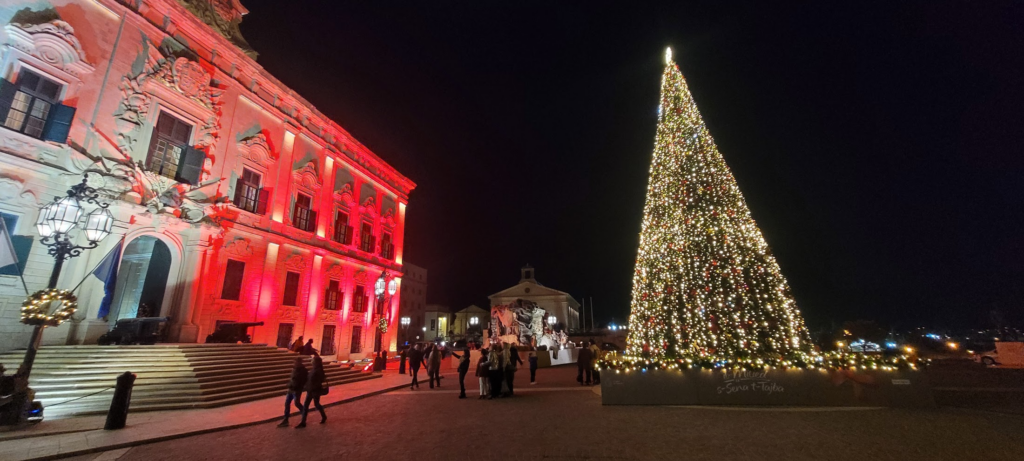
I roamed around the streets of Valetta and had dinner at a local restaurant. There was a Bangladeshi guy who served me. Lots of Bangladeshis in Malta.
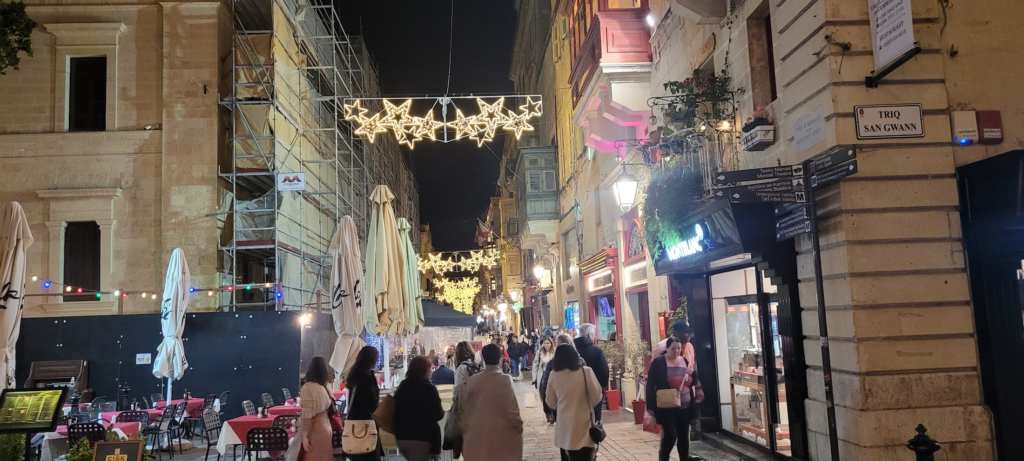
I finished my Valetta city tour at around 7.30 pm and exited via the gates of Valetta. The gates and surroundings were brightly decorated.
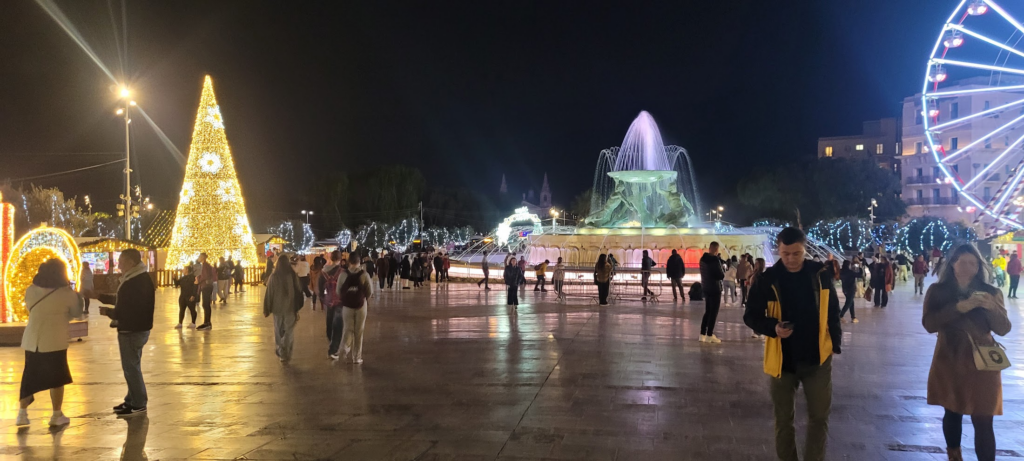
Day 3: Thu, Dec 12, 2024: Islands of Gozo and Comino
Since I had a car, I decided to step out of the island of Malta and go to the neighboring island of Gozo, which is the second largest island. I simply passed by the island of Comino.

I started driving towards the ferry terminal that connects the islands of Malta and Gozo. My first stop was the Malta National Aquarium. It is a decent aquarium, but not as good as the one in Monaco.
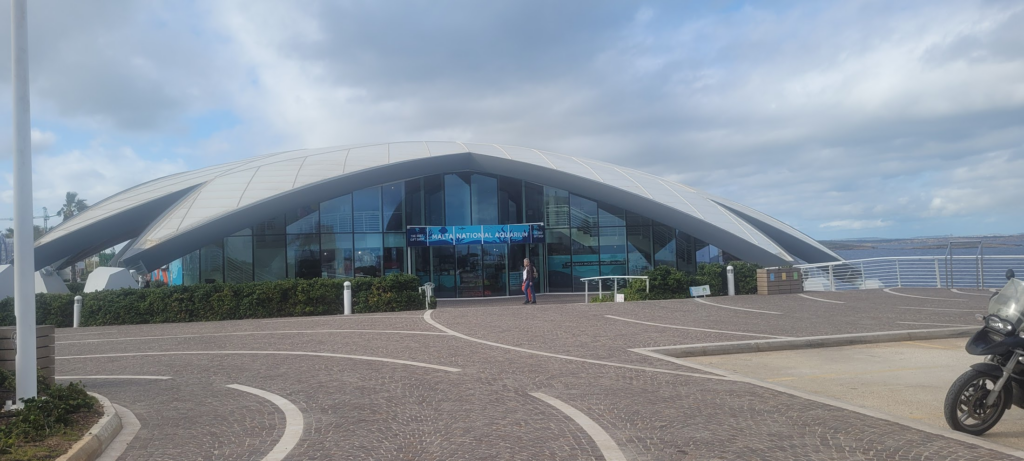
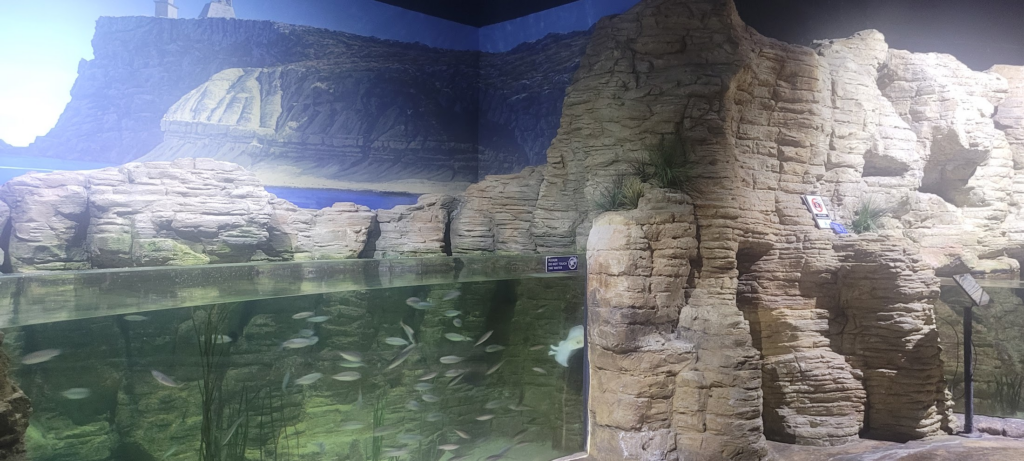
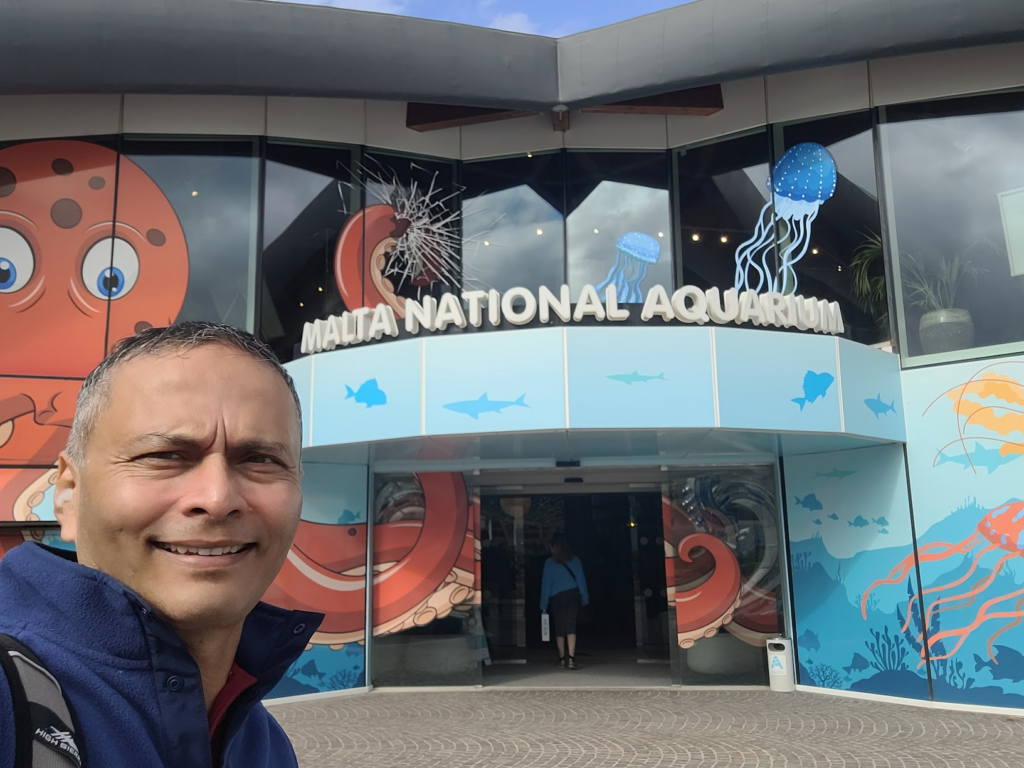
I took my car on a ferry to the island of Gozo. Along the way, on the right I saw the island of Comino which is mostly uninhabitated.
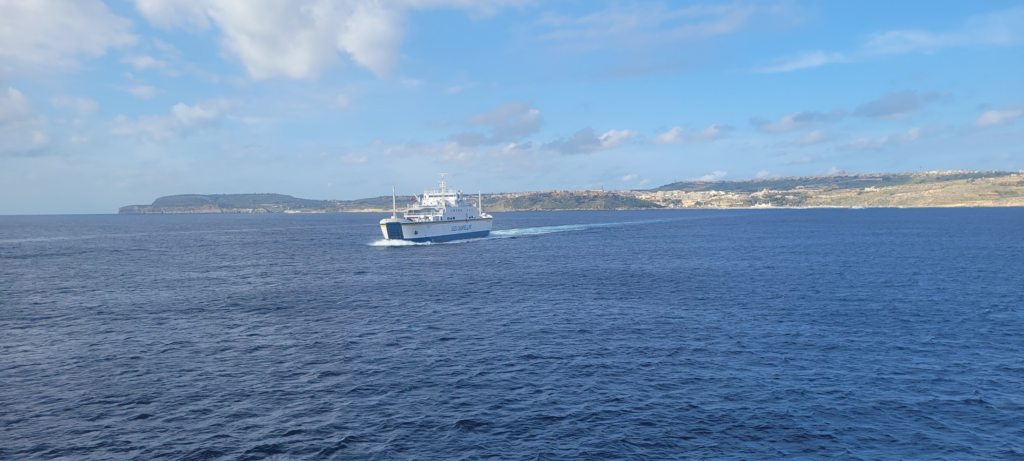

Gozo is the second largest island, but it was much less crowded compared to Malta.

I proceeded towards Ramla Bay to the north end of the island. My first stop was the Ghar Mixta (Mixta Cave), a natural cave located on the eastern side of Ramla Bay.
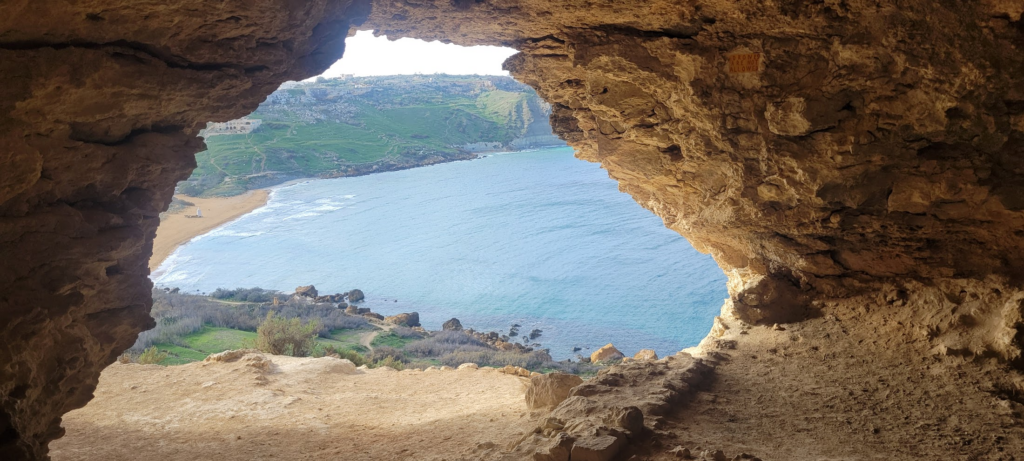
The mediterranean sea looked awesome from this cave. The cave had hardly any tourists. The last part of the road was a gravel path. It was not clear where to find the cave. I guess, December does not bring a lot of tourists to Malta.
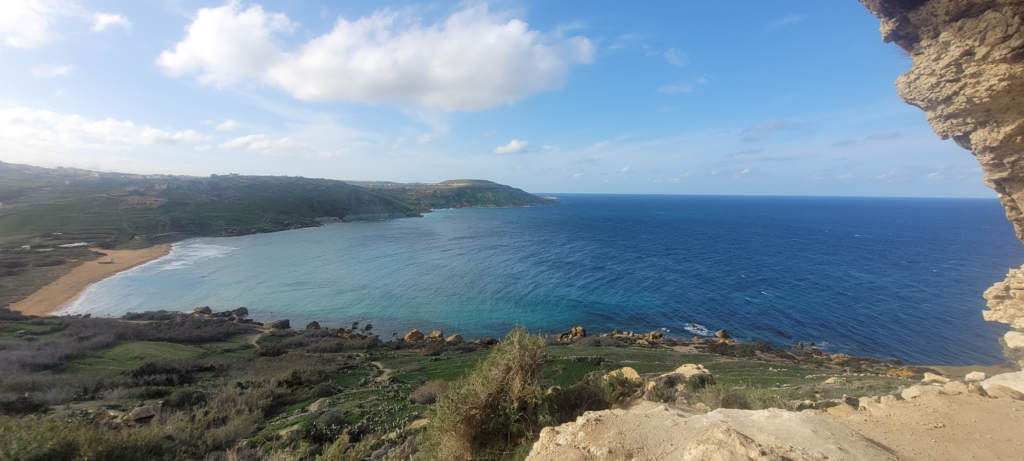
Next stop was the Xwejni Salt Pans. Using only traditional methods, the Xwejni salt pans are an interesting glimpse into the traditions of Gozitan salt harvesting. Salt is collected approximately once per month in the summer seasons.
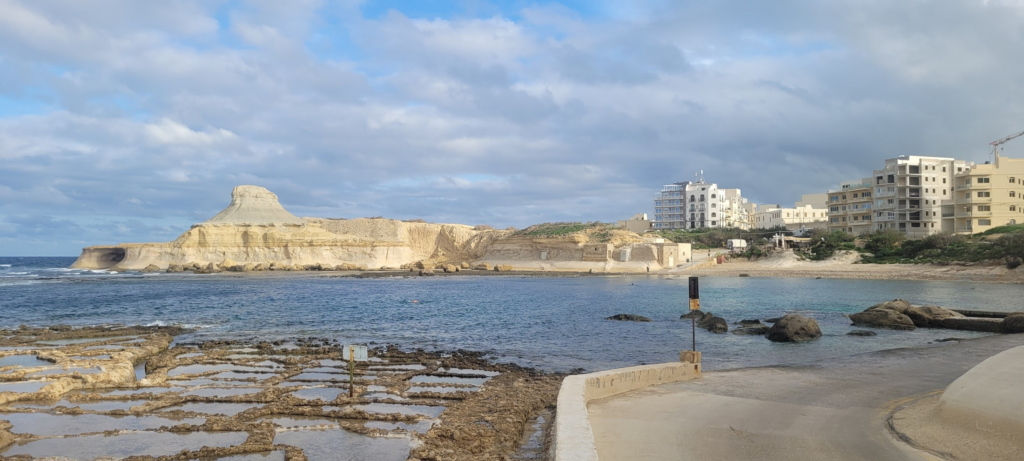
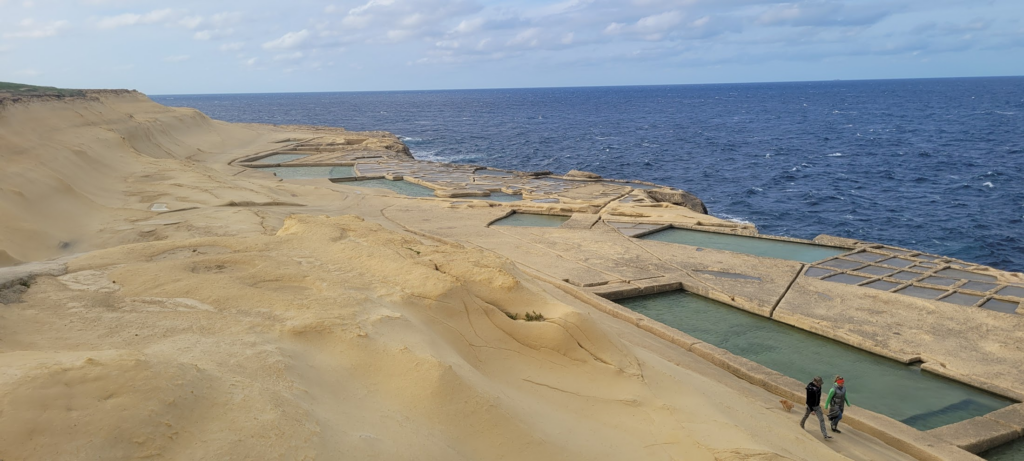
Għasri Valley (Maltese: Wied il-Għasri) is a sea canyon on the Maltese island of Gozo. The gorge continues on the land towards the village of Għasri. It is a beautiful spot.
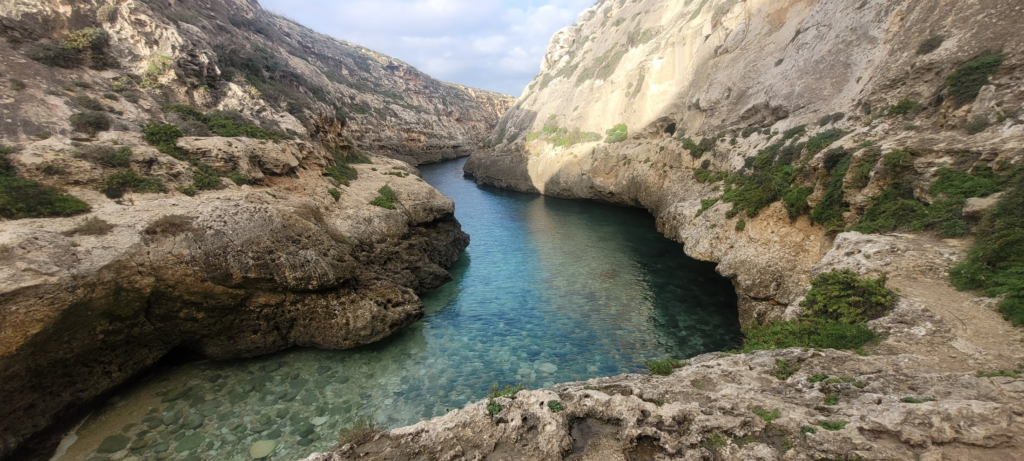
As I continued to drive along the not so well paved roads, I ended up at Ta Pinu Church. The Basilica of the National Shrine of the Blessed Virgin of Ta’ Pinu is a Roman Catholic minor basilica and national shrine located some 700 m from the village of Għarb on the island of Gozo.
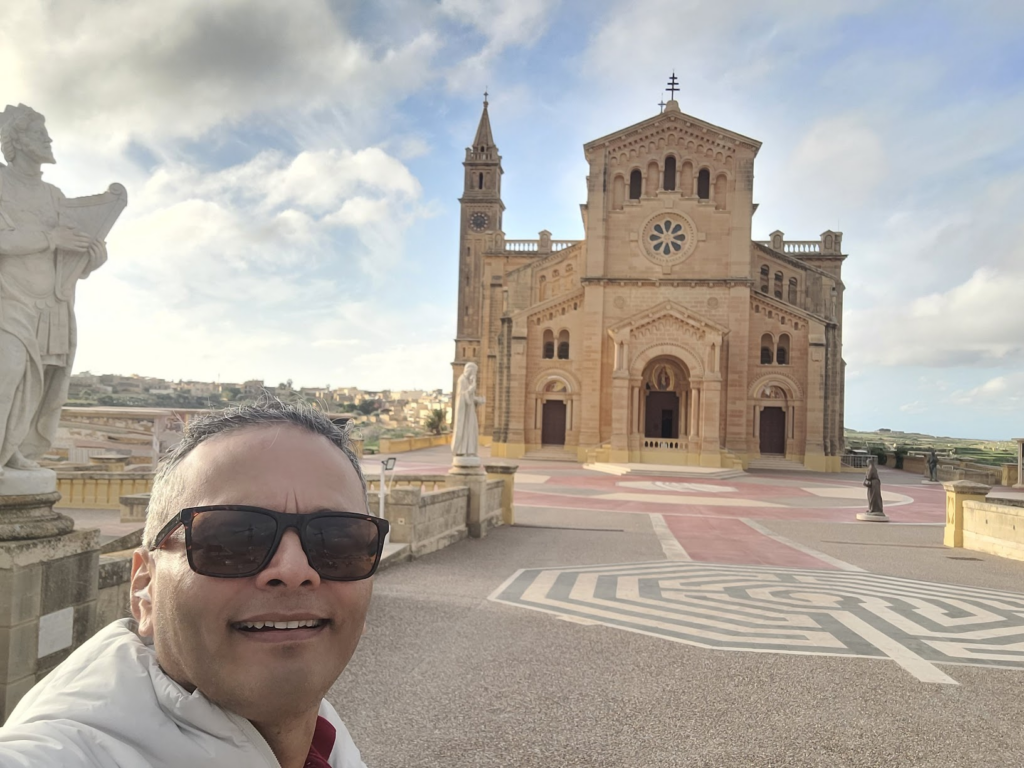
The last stop was the citadel located in Victoria, the capital city of the island of Gozo.
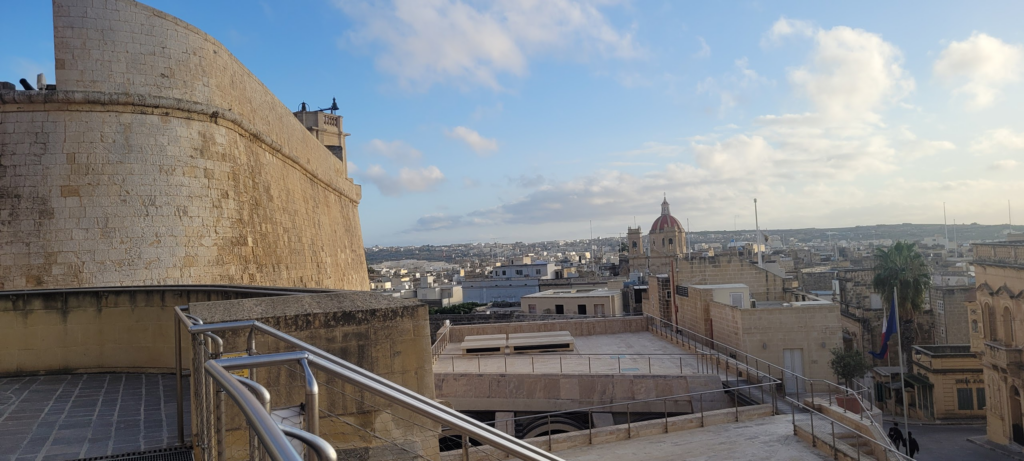
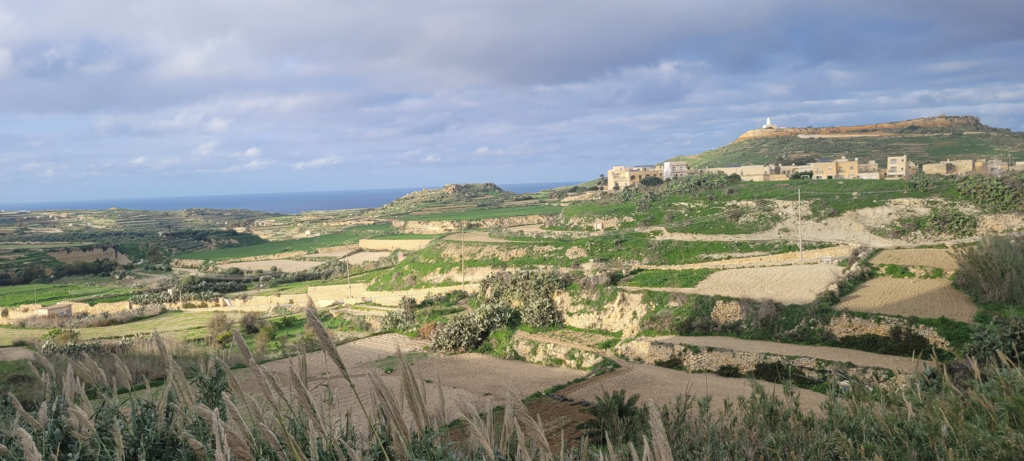
I walked down from the citadel and visited St. George’s basilica in Victoria. I also had a cup of hot chocolate.

I drove back to Malta and slept at the hotel. I woke up early and headed to the airport for a 7.45 am flight on Dec 13 to London to meet Aditya for our trip to Gibraltar and Southern Spain.
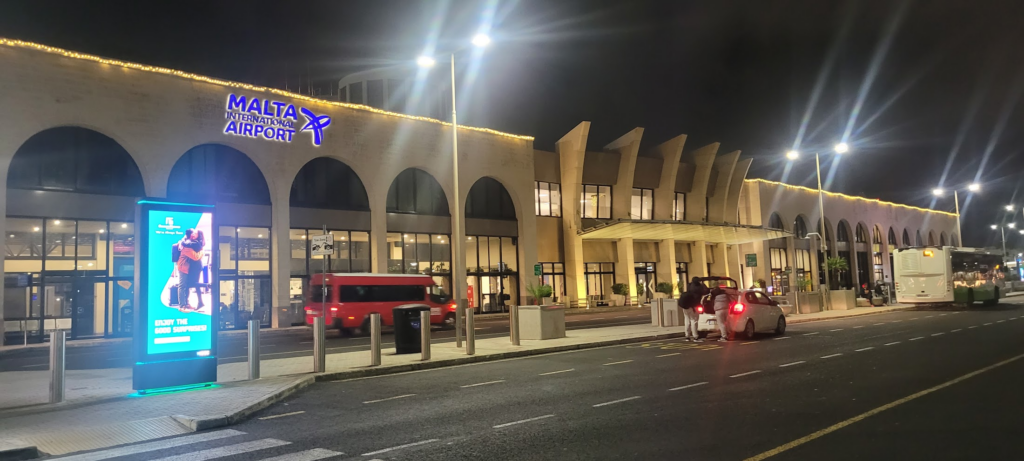
It was a short 3 day trip, but I managed to cover a significant portion of Malta and got a great flavor of the place. Really enjoyed the trip.







